The Salesforce CRM platform, the world leader in customer relationship management, doesn’t stop at optimizing its performance. In this way, it extends the functionalities of Service Cloud with Einstein AI & Analytics, starting with the Enterprise edition. This is where Service Cloud Einstein comes in, a powerful service that represents a qualitative leap in the optimization of customer service.
Let’s take as an example, a Call Center, one of the nerve centers of many companies. This is an area where various roles that are in charge of managing support and communication with customers, come together. With Service Cloud Einstein you can transform your traditional call center into a fully proactive and personalized Contact Center. Through the use of artificial intelligence (AI) the productivity of the team is increased in the following ways:
- The process of classifying and routing new cases based on previous cases is streamlined.
- Provides an overview of the customer, better tools, and fully integrated insights.
- The agent can reduce average handling time and provide a seamless customer experience with the help of voice transcription and a script or recommendation menu, allowing them to fully focus on the customer and resolve their issues on the first call.
- Customers with routine issues may not even require an agent’s attention, but rather a Salesforce chat bot.
According to Salesforce research, the benefits of AI-powered customer service are significant. Data suggests it can increase agent trust and confidence by 75% and first contact resolution by 82%. So, let’s explore what Service Cloud Einstein is.
Service Cloud Einstein
Einstein was released in 2016 during the company’s Dreamforce conference and has been undergoing continuous refinement. It combines AI with CRM data and assisted processes with analytical techniques, allowing deeper analysis of the data that is collected and learning from it. It is connected with CRM data in sales, commercial, and marketing. Through this, it provides service agents with all the information necessary to issue timely responses to customer demands and use predictive models to automate actions and make smarter, more timely recommendations. This can yield a more personalized interaction and promotes a positive user experience which in turn, contributes to an omnichannel experience for the agents.
Artificial intelligence, which is the basis of Einstein, is complemented by several important processes. One of them is machine learning which uses algorithms, with minimal programming elements, to extract information from the data that is collected, thus learning from them and making decisions about what has been learned. In turn, deep learning goes a little further, structuring the algorithms in layers, so that it manages to develop a kind of artificial neural network. They can integrate the volume of data, learn from it and make decisions for themselves. The more data there is, the more the system is trained and the better it is at identifying those patterns. Likewise, the AI manages to perform a natural language processing (NLP) allowing the machine to understand the language between humans.
Advantages of Service Cloud Einstein
Using Service Cloud Einstein provides many benefits to its users. These can be integrated into two main ones:
- Scales customer service by providing it with powerful tools for more personalized attention, reducing waiting times and anticipating situations.
- Optimizes the work of customer service agents, reducing the volume of information to process, filtering and classifying cases, as well as automating responses, among other features.

What is Salesforce Einstein and why should you use it in your business?
Salesforce Einstein is an integrated set of technologies that brings the power of artificial intelligence to all Salesforce cloud products. Why should you use it in your business? What characteristics make it a very useful tool?
Features of Service Cloud Einstein
Now let’s look at Einstein and its advantages from some of the features it offers. It is worth noting that these may vary depending on the edition available. In all cases, their customer service is operational 24/7.
1- Einstein Next Best Action: This functionality makes proposals available to the service agent about the next best actions that can be performed with a given customer in a given situation. These actions can range from sending a message to the customer as an apology for a delay, to making special offers or discounts.
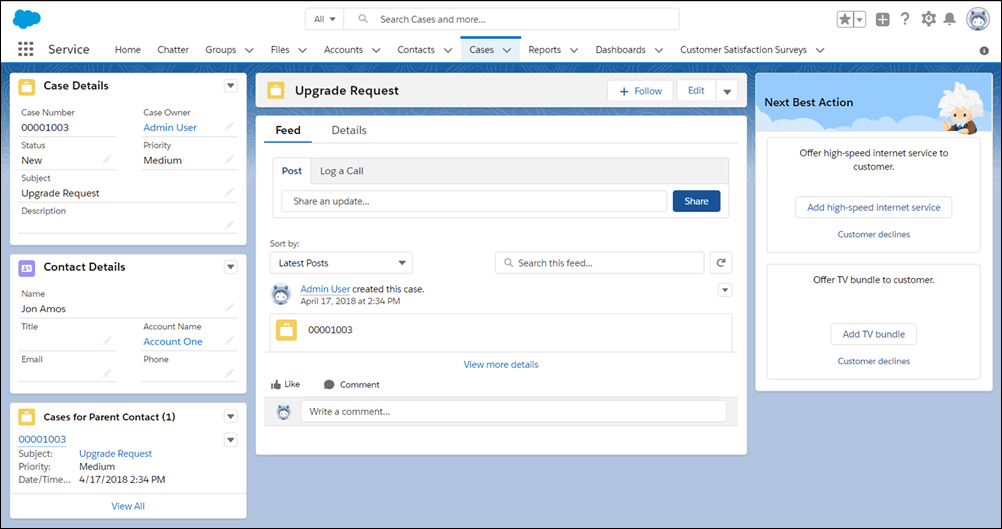
2- Einstein Bots: These are virtual customer assistants that automate the handling of customer inquiries, especially if they are repetitive. They issue responses without the mediation of service agents or they collect information in advance for them. They are based on natural language processing and integrate with the available messaging and chat channels.
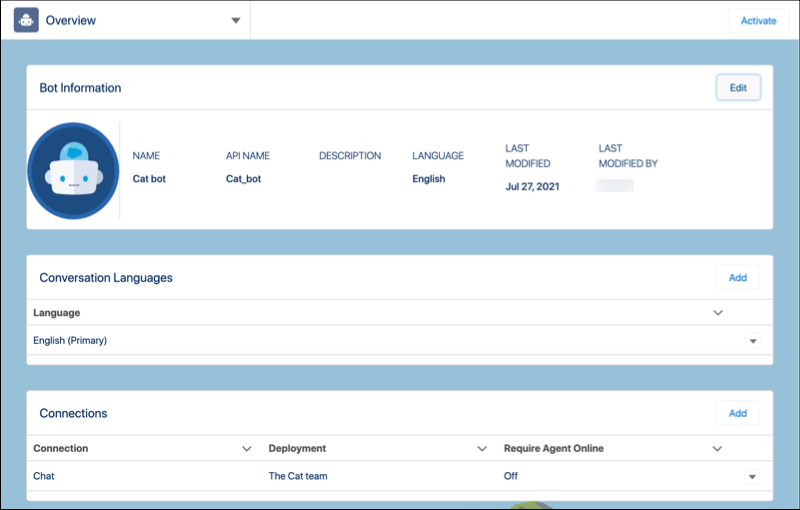
3- Einstein Reply Recommendations: From transcripts of closed chat conversations, Einstein creates a predictive model of the best responses for certain queries in chat and messaging sessions. To do this, it requires analyzing at least a thousand chat transcripts. Thus, when the customer asks a question, Einstein shows the service agent possible answers, and they only have to choose the most appropriate one, and if they think necessary, they have the option to edit it before sending it. It is worth noting that this response recommendation is only available in English.
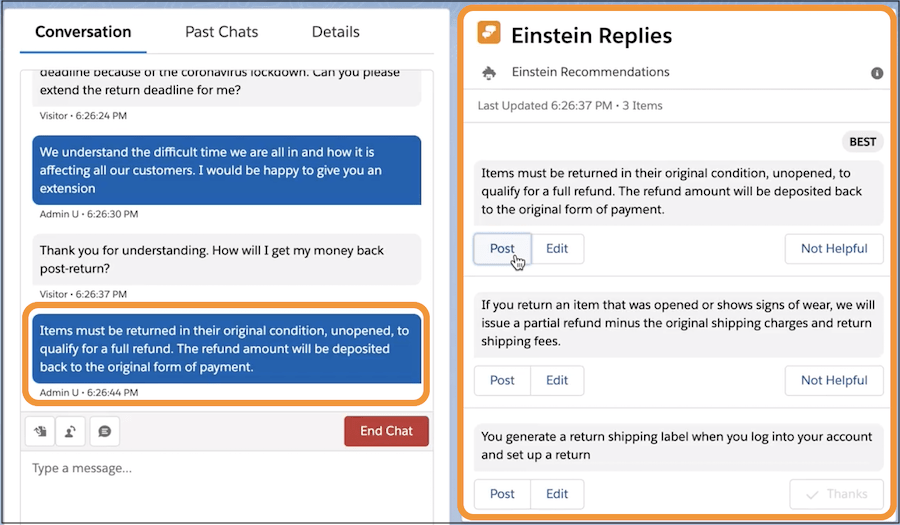
4- Einstein Article Recommendations: Agents sometimes need certain articles, within Salesforce Knowledge, to resolve a case. Salesforce Knowledge is the knowledge base created by experienced service agents or in-house writers that collect information about the CRM, its processes, and frequently asked questions from users. From this, Einstein, with its AI, is able to learn which articles were useful in solving each case. Thus, it ranks them and when faced with new cases it shows suggestions based on their relevance to the present case. The service agent can propose modifications to the articles, attach others or even mark if they have been useful for the case in question. These interactions constitute reinforcements in Einstein’s learning.
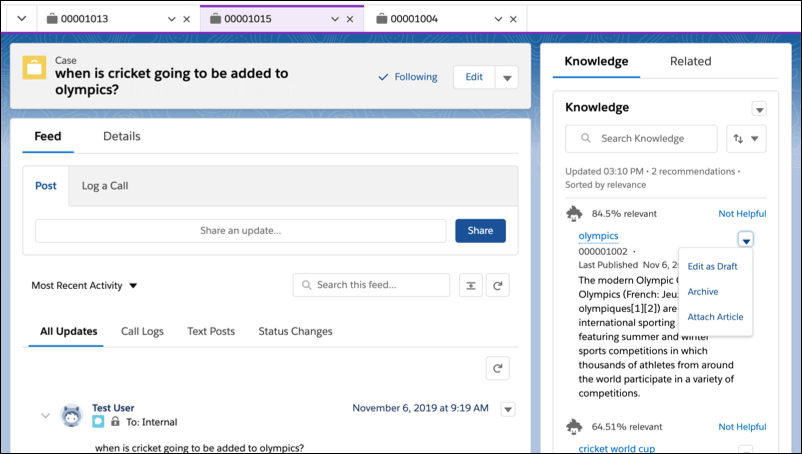
5- Einstein Case Classification: This allows you to expedite the classification of new cases. With long-standing case management by service agents, Einstein is able to learn the values assigned to different fields during field triage. Thus, in the face of new cases, it can predict field values based on its closed cases and chat transcripts.
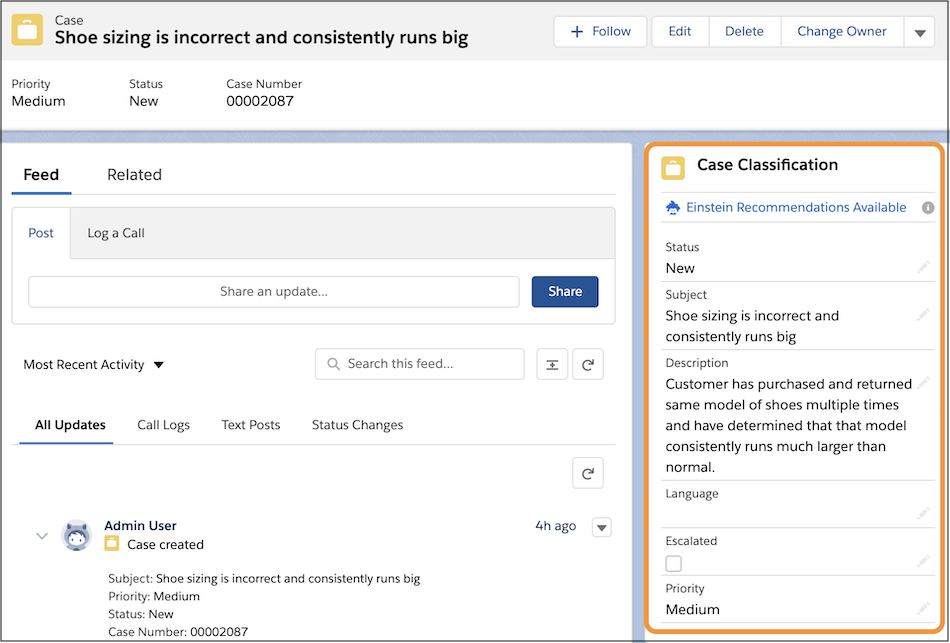
6- Einstein Case Wrap-Up: This allows service agents to close cases faster from previous case summary. Like Case Classification, Einstein Case Wrap-Up suggests field values based on what they’ve learned from previous cases to unlock key customer service data.
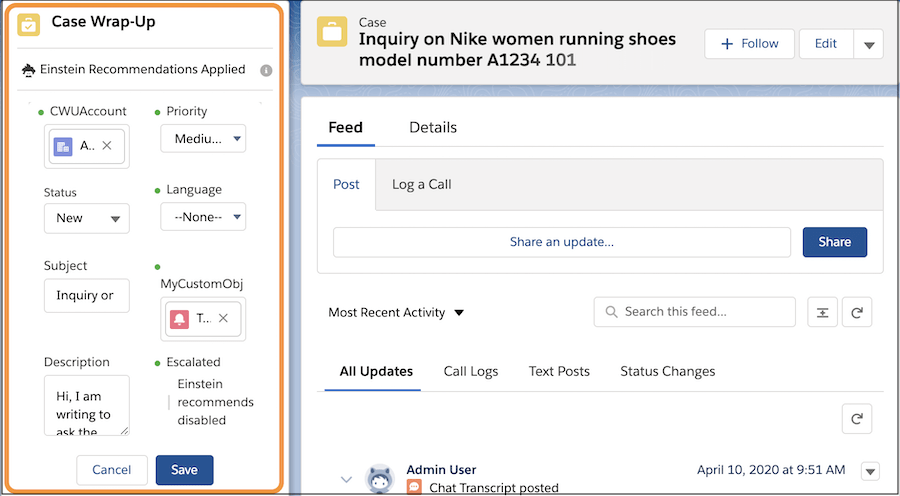
7- Einstein Case Routing: Knowing the classified cases, Einstein routes them to the correct agents to cover each specific case. He connects the right mobile agents (Field Service) with the right cases, contributing to a more efficient service.
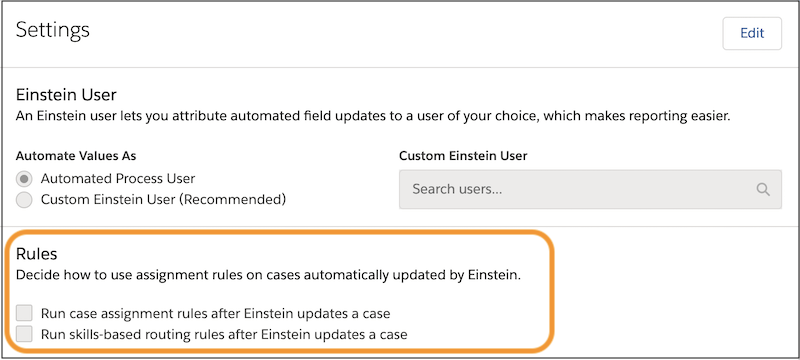
8- Analytics Service: This is a type of Einstein Analytics template that essentially performs and displays behavioral analysis of various Key Performance Indicators (KPIs). Service agents use these data and customer analytics to streamline decision-making and respond to queries.
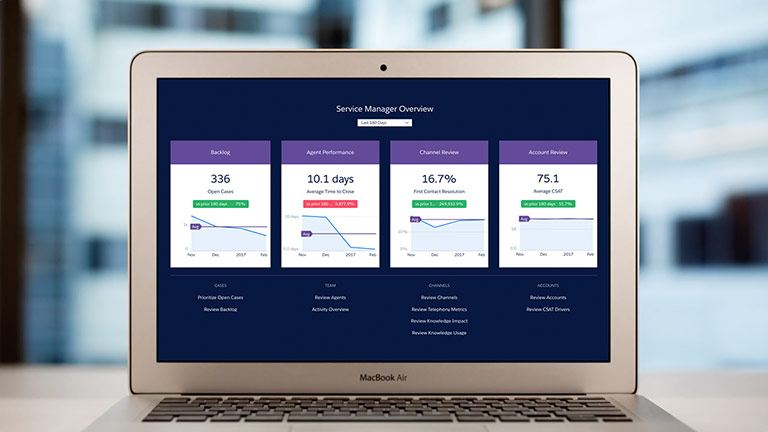
Without a doubt, Service Cloud Einstein is a great ally for service agents and the entire company itself. This in turn translates into personalized, efficient and timely attention, which has a positive impact on customer satisfaction. Would you like to learn more about this service? The SkyPlanner team can provide you with the guidance you need to work with Einstein support. You can write to us at hello@theskyplanner.com.



